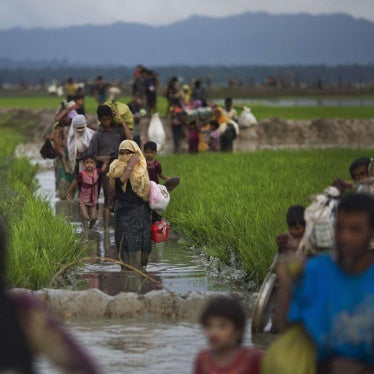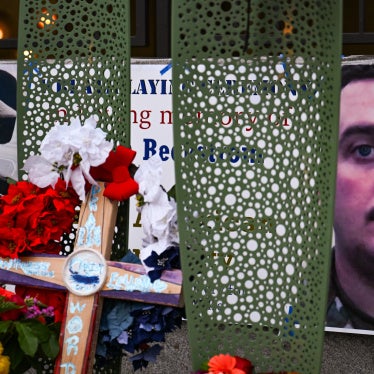'After 30 years we now see the dawn that will take us to a golden age of the future,' declared Sri Lankan President Mahinda Rajapaksa as he presided over the third Victory Day celebration on May 20. Over 12,000 personnel participated in the parade of military and police equipment used to defeat the rebel Liberation Tigers of Tamil Eelam (LTTE) in 2009 after a three-decade long war.
A golden future will need more than triumphalist statements of victory. The cost of the war to Sri Lankan society was huge. More than 100,000 civilians died in the long conflict and nearly 40,000 in the final months. According to the government, over 24,000 Sri Lankan soldiers lost their lives and many more were wounded or maimed. Over half a million Sri Lankans were forced to flee their homes, either because of the fighting or ethnic cleansing. Many more moved to other countries, including India.
Both government forces and the LTTE were responsible for countless abuses for which virtually no one has been punished. Targeted killings and LTTE suicide bombs were frequent. The authorities arbitrarily arrested thousands of men and women. Many suffered torture, including sexual assault, and often languished for years in prisons across the country, detained without trial under the draconian Prevention of Terrorism Act. Thousands more disappeared in what may have been enforced, and this happens even now. Recently, hundreds of Sri Lankans, mostly women, turned up to search for their missing or detained relatives at the places listed by the government that could provide information. Most of them were turned away, disappointed.
The government refuses to face up to the human consequences of its military operations in the war's final months. Sri Lankan forces committed indiscriminate shelling into populated areas, summary executions of prisoners, and other war crimes.
India has been encouraging Sri Lanka to address this disturbing legacy. Its role in Sri Lanka has been difficult, having intervened with an unsuccessful peacekeeping force in 1987-90, and enduring the LTTE's assassination of former Prime Minister Rajiv Gandhi 20 years ago. All these led India to back Sri Lanka's military efforts against the LTTE.
With the end of the war, New Delhi pushed for reconciliation among ethnic communities, the rebuilding of shattered lives, and a government investigation into allegations of war crimes. As a result of international pressure, Sri Lanka has grudgingly made some cosmetic gestures towards these ends, but justice and reconciliation still remain a pipe dream, particularly for families who suffered abuses from both sides.
Those that expected India, as an emerging global leader with a seat in both the UN Security Council and the Human Rights Council, to demand greater accountability in Sri Lanka, were disappointed when it provided development assistance for reconstruction efforts without insisting that the government take credible steps to address these concerns.
Colombo was taken aback when India chose to support a resolution at the Human Rights Council calling for Sri Lanka to act on the recommendations of its Lessons Learnt and Reconciliation Commission. The Rajapaksa government responded by criticising political parties in Tamil Nadu and other opposition members who had called for support for the US-led resolution and even threatened India over its own domestic human rights record.
Sri Lanka would do better if it would understand why even its closest supporters are expressing disapproval. The Sri Lankan military, which has retained a large presence in the northern areas formerly held by the LTTE, continues its abusive behaviour towards ethnic Tamil civilians, as well as former combatants and their families. Disappearances are reported even now. Women, who approach soldiers seeking news of loved ones, who have vanished, or to protect those in custody, have been known to be coerced into providing sexual favours.
Local activists, who have been the target of government harassment, threats and worse, bravely carry out their work and report about the grim situation.
India has continued its efforts at encouraging reconciliation. A 12-member parliamentary delegation was recently in Sri Lanka and emphasised yet again the need to ensure that Tamils, after decades of war, can enjoy peace that provides "equality, dignity, justice and self-respect". However, the government has persisted in its suspicion and has been demonising the Tamil community.
India retains a major influence in Sri Lanka. It should insist that the government takes steps to ensure justice for all Sri Lankans from all communities. Two years ago, a UN panel of experts called for an independent international mechanism to monitor the government's accountability process and investigate allegations of war crimes from all sides - and India should support this. For a golden future, every Sri Lankan must believe that there will be a fair society in which there is justice and accountability for all.
Meenakshi Ganguly is the South Asia director at Human Rights Watch. The views expressed by the author are personal.









